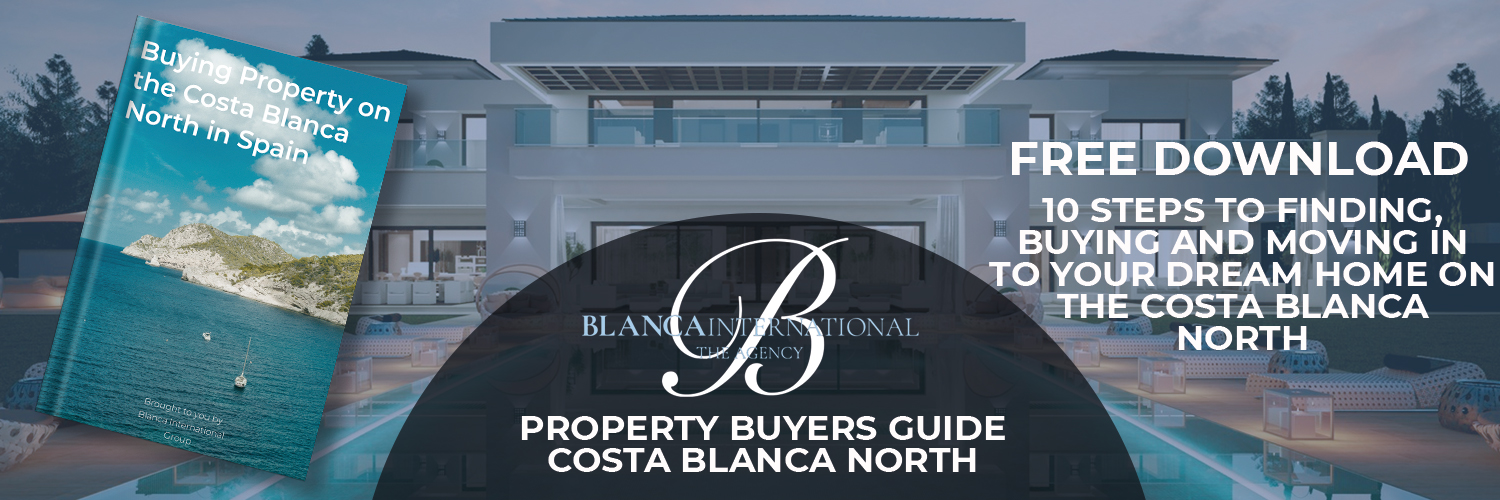The Javea property sellers guide 2022 – 2023 edition covers all you need to know about selling your property in Javea. This will include information such as: who is liable to sell a property, how to sell it and what documents are required to smoothly carry-out the process. Everything you need to know when selling your property in Javea in Spain.
Property prices in Spain increased by 4.68% during the year to Q3 2019, however they were increasing at a slower rate than the previous year. The COVID-19 pandemic has impacted the housing market in Spain, and despite positive signs of recovery, pricing indexes are indicating a potential drop in house prices. When deciding whether you want to sell your Javea property, make sure you do your homework, and one of the best ways is to speak to a local Javea estate agent.
This Javea property sellers guide cover:
Use this Javea property sellers guide as a check list when you are in the process of selling your property.
- Checklist – selling your property in Javea
- Documents needed to sell property in Javea
- Taxes & costs of selling property in Javea
- Timeline of selling property in Javea
- Why you need a real estate lawyer when selling your property in Javea
- When to use a currency exchange service when selling your property in Javea
- Tips for selling your property in Javea quickly
#1 Checklist – selling your property in Javea
Signing a property transfer agreement before a public notary in Javea will be the final step on your seller’s journey (bar tax declarations).
The public notary performs a purely administrative duty in Spain, but won’t sign any property transfer agreement without the presence of essential documents.
These documents are overwhelmingly the seller’s responsibility to provide.
Here’s a checklist of the essential legal documents you need to sell property in Javea:
- Photocopy of the Escritura de Compraventa or the Aceptación de Herencia.
- DNI if you’re a Spanish national, TIE card or residency document if you’re a foreign resident, or passport and NIE if you don’t live in Spain.
- Nota Simple Informativa
- Most recent IBI bill and proof of payment.
- Cédula de Habitabilidad
- Certificado de Eficiencia Energética
- Most recent utility bills (water, electricity, gas, waste, community of owners fees, etc.)
If you don’t know what the above documents are, or don’t understand the Spanish, don’t worry.
Below, we’re going through each of these step-by-step.
#2 Documents needed to sell property in Javea
Escritura de Compraventa
The Escritura de Compraventa confirms you are the owner of the property in question.
You might know the Escritura de Compraventa as a property transfer agreement or bill of sale. It’s the document you and the previous seller signed when transferring the keys and making the payment on your current property.
(If you’re selling an inherited property, you’ll need the Aceptación de Herencia or acceptance of inheritance deed which confirms you or a number of inheritors are the legal owners of the property.)
Lost your Escritura de Compraventa?
The quickest way to get another is to request a copy from the public notary you used when buying the house.
DNI, TIE card, residency permit, passport, NIE
Identity documents and proof of residency should be straightforward – just know that in the case of multiple inheritors or owners, you need the documents of each person written into the Escritura de Compraventa or Aceptación de Herencia.
You can’t sell a property of multiple owners without the consent of all parties.
Nota Simple Informativa
The Nota Simple Informativa details any outstanding charges, debts or mortgages on the property.
Lost your Nota Simple Informativa?
You can request one online on the Registradores de España website, or visit one of the two Registro de la Propiedad offices in Javea.
IBI
IBI stands for Impuesto de Bienes Inmuebles and is the property tax every homeowner in Spain pays annually to their relevant municipality – in our case, the Ajuntament de Xàbia.
Proof you’ve paid your most recent bill is essential at the notary’s office.
If confirms you are up to date with payments, and the buyer won’t receive an unexpected extra charge.

Cédula de Habitabilidad
The Cédula de Habitabilidad (certificate of habitability) confirms your property is fit to live in.
The document is issued by the Ajuntament de Xábia, and carried out by a registered professional. You need the certificate to contract utilities (water, electric, gas) and to take out a mortgage – it’s therefore essential a seller brings this before a notary when signing a transfer deed.
In the Valencian Community, the certificate is known by three names:
- Licencia de primera ocupación (for new build properties)
- Licencia de segunda ocupación (for second-hand properties)
- Licencia primera ocupación de rehabilitación (for properties after a reform or renovation)
The document is valid for 10 years.
Don’t have a Cédula de Habitabilidad or renovated your house recently?
You will need to contract a technician or architect to inspect your property and issue a new certificate.
Certificado de Eficiencia Energética
The Energy Performance Certificate rates the energy efficiency of a property on a scale of G to A.
The certificate is obligatory in EU countries – in Spain, a certificate remains valid for 10 years except where a property is rated G, in which case it’s valid for 5 years.
Don’t have a Certificado de Eficiencia Energética?
You will need to contract a technician or specialist to inspect your property and issue a new certificate.
Utility bills
Proof of payment of utility bills confirms you are up to date with payments, and also that supplies of water or electricity have not been cut to your property.
These are essential at the notary’s office.
Other legal documents to sell a property in Javea
We’ve just covered the list of essential documents to sell a property in Javea.
Depending on your situation, you may need a few more:
- Inspección Técnica de Edificios (ITE). If your property is over 50 years old, it will require a technical building inspection certificate, which is then valid for 5 years. If you have a valid certificate, but you’ve lost it, you can request another from the Ajuntament de Xàbia. If you don’t, only a legally accredited professional (architect, quantity surveyor, technical architect or construction engineer) can issue a new one.
- Justificante de la Comunidad de Propietarios. If your property finds itself within a community of owners (e.g. in an urbanisation) you will need a letter or certificate from the community’s president confirming you are up to date with all community bills, repairs and any other charges.
- Vivienda de Protección Oficial. If your property is under official protection, you will need to request a certificate from the Valencian Government which indicates a maximum sale price, the terms of protection and any other limitations.
- Poder Notarial or Nota de Encargo. If you are selling a property on behalf of a third party, you will need a nota de encargo. If the owner of a property is ill, away or otherwise unable to sell a property themself you may need a power of attorney document, or poder notarial.
- Ampliación de obra. If the escritura of your property does not include any extensions, swimming pools, out-houses, covered terraces or similar these will need to be updated in the official land registry (registro de la propiedad). To do this, you will need to present an ampliación de obra document prepared by an architect or technician, who will then submit the document to the Javea land registry. Any undeclared works could increase the amount of property tax you need to pay (e.g. when declaring construction of a swimming pool) and lead to complications for a buyer taking out a mortgage.
- Cancelación de Hipoteca. If you had a mortgage on your house, this will be reflected in the Nota Simple Informativa as an outstanding debt. If it’s paid, you will need to present a cancelación de hipoteca document to the land registry in Javea.
#3 Taxes & costs of selling property in Javea
Property transfer taxes, notary costs and land registry inscription costs are all covered by the buyer.
But if you’re selling property in Javea you will still have taxes and costs to pay.
These additional charges can amount to 5-10% of the sale price.
Let’s first take a look at the taxes to pay when selling property in Javea:
- Impuesto sobre la Renta de las Personas Físicas (IRPF). You will need to declare any capital gain made when selling a property in your annual tax return (declaración de la renta). You can reduce the taxable base by subtracting any estate agent fees, municipal capital gains tax, any other costs such as for the mortgage cancellation document. The resulting taxable base is taxed at 19% for a value up to €6,000; 21% for a value between €6,000-€50,000; 23% for a value over €50,000.
- Plusvalía Municipal. You will need to pay municipal capital gains tax within 30 days to the Ajuntament de Xàbia. The amount depends on the rateable value (valor catastral – you can find this in any IBI receipt) and this is taxed by a coefficient depending on how long you’ve owned the property. In Javea this is usually 3.2% if you’ve owned the property for 1 to 5 years; 3.5% if you’ve owned the property for 5 to 10 years; 3.2% if you’ve owned the property for 10 to 15 years; 3% if you’ve owned the property between 15 to 20 years.
Let’s take a look at any additional costs you may need to pay when selling a house or apartment in Javea:
- Real estate commission. Real estate agents typically charge between 3% to 5% of a property’s sale value as commission for listing, promoting and finding a buyer for your property.
- Certificado de Eficiencia Energética. Contracting a professional to issue a new energy performance certificate can cost between €55 to €600 in Javea, depending on the size and property type, according to Certicalia.
- Cédula de Habitabilidad. Contracting a professional to issue a new certificate or licence of habitation can cost between €75 to €600 in Javea, with 24-hour services priced as high as €1,400, according to Certicalia. There’s also a tax to pay of €10 to €20.
- Non-resident retention. If you’re not a tax resident in Spain, the buyer will need to retain 3% of the sale price to pay the Spanish taxman (Hacienda) on your behalf towards your end-of-year tax declaration.
- Lawyer or fiscal representative. It’s advisable to have a lawyer assist you in securing documents, checking for any outstanding charges, and writing or validating any contracts while selling property in Javea. According to TuCaso, a property lawyer can cost anywhere between €50 to €1,200 with an average at €450.
- Ampliación Escritura. If you need to register any extensions, swimming pools, out-houses and so on in the land registry, contracting a professional can cost between €378 to €2,900 in Javea according to Certicalia.
- Cancelación de Hipoteca. Requesting your bank for a mortgage cancellation certificate can come with a cost between €600 to €1000 in Javea.
#4 Timeline of selling property in Javea
It can take three to months to sell a property in Javea.
Below, we’ve prepared a rough timeline of the process of selling property in Javea and the estimated duration of each interval (from month 1 to month 4):
- Deciding to sell (month 1). The first step is to decide to sell your property. While this seems like an immediate decision, you may need to figure out your outstanding mortgage, get a professional property evaluation, examine your finances and analyse the property market in Javea.
- Prepare documents (month 1 to month 2). Once you’ve decided to sell, you need to prepare all the necessary documents we’ve discussed above before putting your property on the market. It can take days or weeks to receive the correct certificates or make updates to your Escritura in the land registry. Get a head start to avoid delaying an interested buyer.
- Put property on the market (month 1 to month 2). You may wish to talk to various real estate agents in Javea and analyse their target market, experience and commissions. You’ll need to get clear on a sale price, contract a property lawyer if necessary and prepare your home for photographs and visits.
- Accept an offer (month 1 to month 3). The property market moves fast in Javea – but if your property is too highly priced, not well listed or lacks the correct documents, it can take months before you receive an offer you want to accept. Offers are typically presented in written form and with a promise to pay a reservation fee. You can refuse the offer, make a counter offer, or accept and move forwards to signing a contrato de arras which removes the property from the market in exchange for the buyer paying 10% of the agreed sale price into a notary or lawyer’s escrow account. If the buyer withdraws from the process, they forfeit the deposit.
- Notary’s office (month 2 to month 4). After accepting an offer, the buyer may need to ready their funds or secure a mortgage. The seller may also need to liquidate any outstanding charges, secure certificates or perform any other tasks agreed in the reservation contract. This process itself can take up to three months. Once everything is in order, it’s time to head to a public notary office to sign the new Escritura de Compraventa, hand over the keys, and receive the full payment.
- Liquidate the Plusvalía Municipal. Remember you need to pay the municipal capital gains tax within 30 days of receiving payment for your property.
- Declare and liquidate the capital gain. You will need to declare your capital gain and liquidate any taxes in your Declaración de la Renta, which is presented at the end of the fiscal year (December 31) in Spain. You may need the help of a lawyer or gestor to accurately calculate the capital gain, reduce the taxable base with any relevant deductions and make the tax declaration.
#5 Why you need a real estate lawyer when selling your property in Javea
As a seller of a property in Javea in Spain, you’ll want to hire an attorney if:
- You’re selling land of a deceased relative
- The property has structural problems
- You have a history of property liens (due to debt)
- You’re negotiating a divorce and need to split the assets
- You are in the midst of a short sale or foreclosure
- You require a partition lawsuit to force the sale of the property
Having legal counsel makes good business sense because of the complexities that come with real estate transactions. An experienced, competent real estate attorney in Javea can help to protect your interests and ensure that your process adheres to the applicable rules of your municipality—and that the closing occurs to the satisfaction of all involved.
#6 When to use money exchange service?
If you’re selling your property, you’ll probably need to deposit a banker’s draft into your Spanish account before transferring your funds. Usually this means a percentage of your sale price going straight into the local bank’s pocket. Thanks to Currencies Direct exclusive partnership with Caixa Bank, you won’t be charged a fee; just speak to Currencies Direct to access this service.
Let’s use the example of sending £100,000 to Spain to see how much you could save by making the transfer with Currencies Direct compared to your high street bank.

That’s an additional €3,118 in your overseas account. Rates compared on 29 July 2019. When comparing our exchange rates to the banks, we use the International Money Transfer Index (an independent comparison service), so you get a verified, “real world” comparison. Source: CurrenciesDirect.com
#7 Tips for Selling Your Property in Javea quickly
Set aside some time for a facelift before viewing. Simple steps that you can do yourself will very often pay off. The biggest mistake people make going back and forth is to leave many loose and personal things around the home. It is perceived as untidy, and looks bad in the pictures of the home. So, is there anything that you can do to make yourself more effective – and thereby sell more quickly? Here are some tips for the most important rooms in your home.
Facade
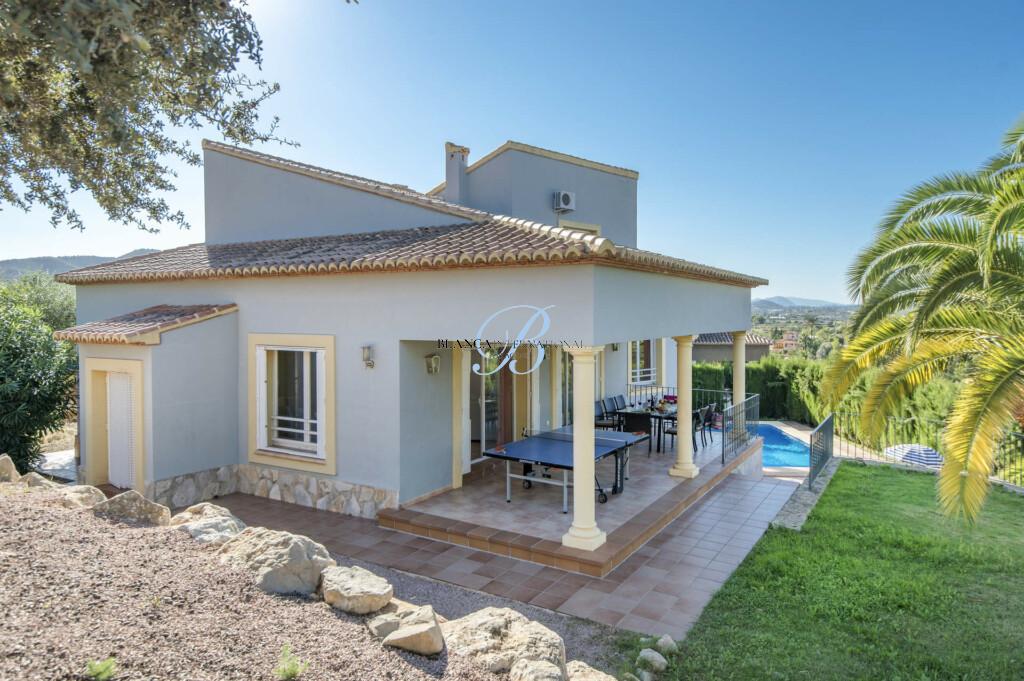
What to do with the facade to help your Javea property to sell quickly? Homes in Javea are mostly wall and tiles. This means that the cost is low compared to freshening up with new paint in bright neutral colors both inside and out. If there are tiles on the floor from the early 80’s with flower decorations and bunches of grapes, then you should consider replacing these with something more contemporary. Check windows, window and gutters. Fix holes in the walls after pictures, replace old lamps, and make sure all light bulbs work.
The bathroom
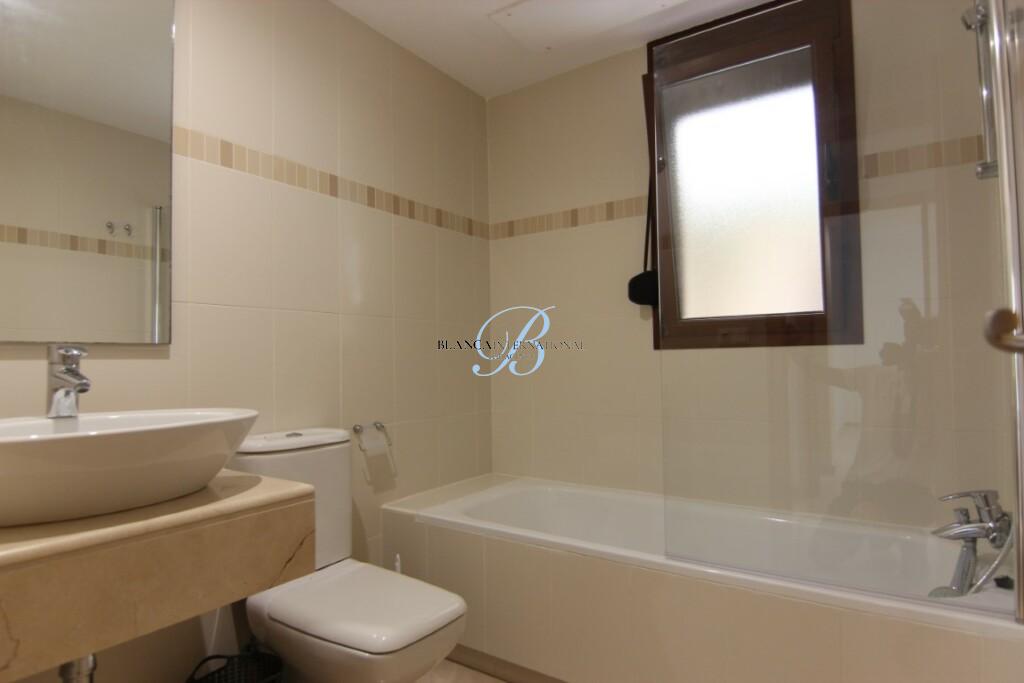
What to do with the bathroom to help your Javea property to sell quickly? Lay down the lid, remove toothbrushes, hygiene items, double brush and trash bucket. In addition, make sure to wipe the mirror and that the water tap shines. Hang up discreet towels in the same colors, and that there is a new toilet roll in the holder, and fresh air.
Kitchen
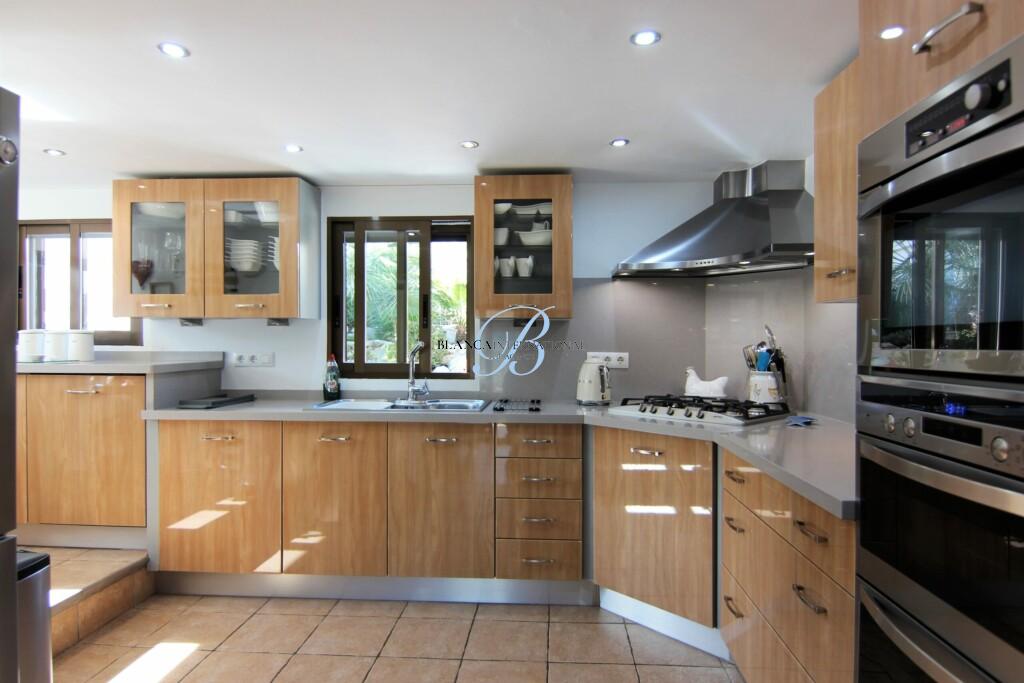
What to do with the kitchen to help your Javea property to sell quickly? Some people forget to remove the dishes from the bench when the home is to be sold. Remove dish brushes, detergent, toaster and other items that do not need to be left standing. Make sure the sink and the counter top are spotless.
Living room
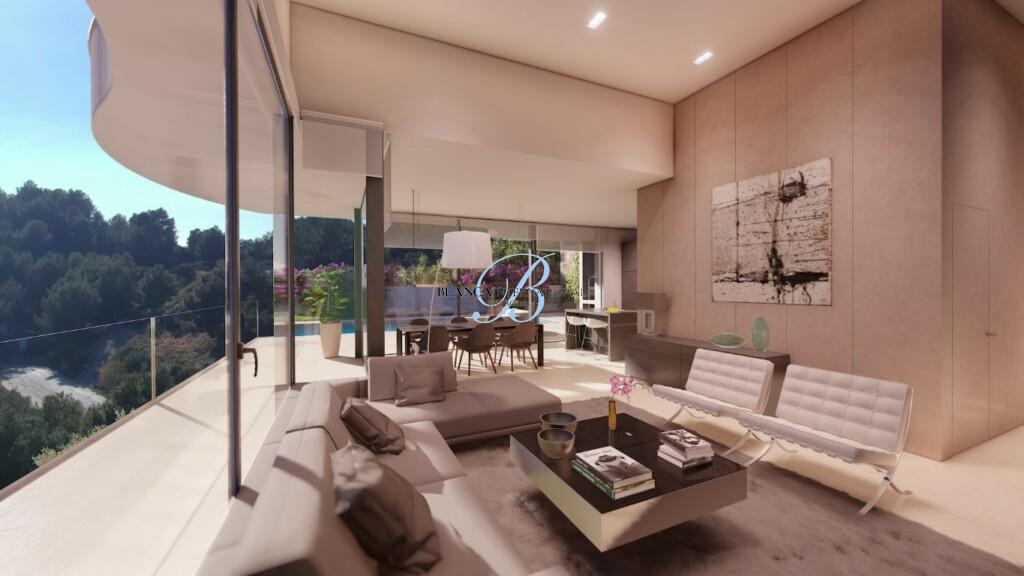
What to do with the living room to help your Javea property to sell quickly? Remove all magazines, remote controls, private photos and other personal belongings. The buyer should imagine that they are the ones who will be living in your home, so do not ruin this feeling with your own personal belongings. Make sure any paintings are hanging straight.
Bedroom
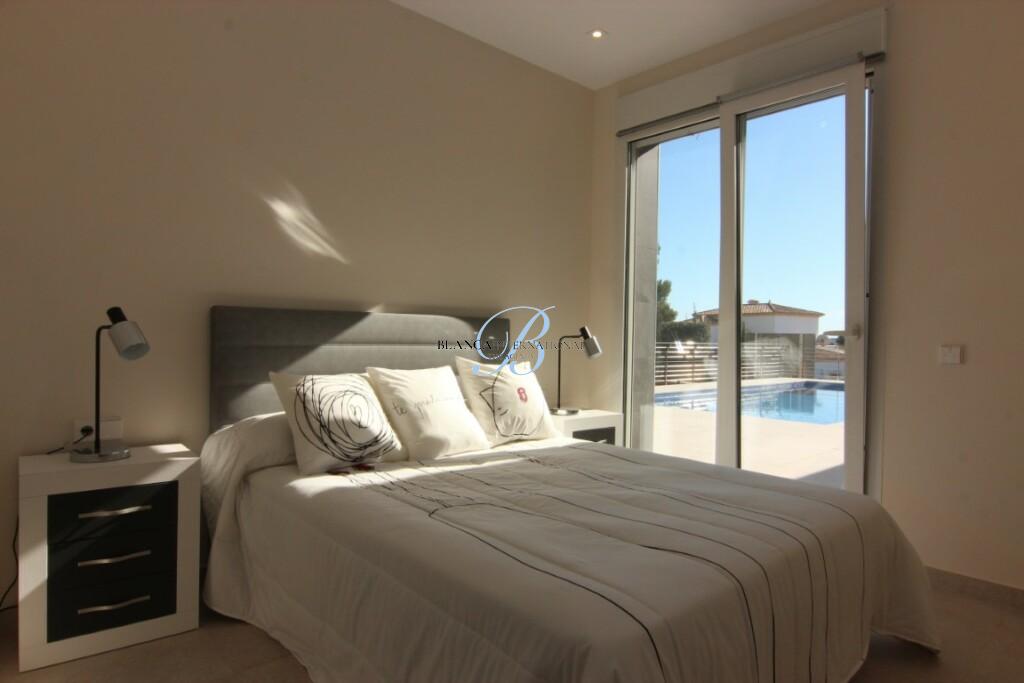
What to do with the bedroom to help your Javea property to sell quickly? Make the bed, and use a nice bed-cover. Put all personal belongings in drawers and cabinets. Ventilate well and let in light. It is important to create a good feeling of space in the home, and make it seem light and airy. Your efforts can be decisive whether you get sold or not.


